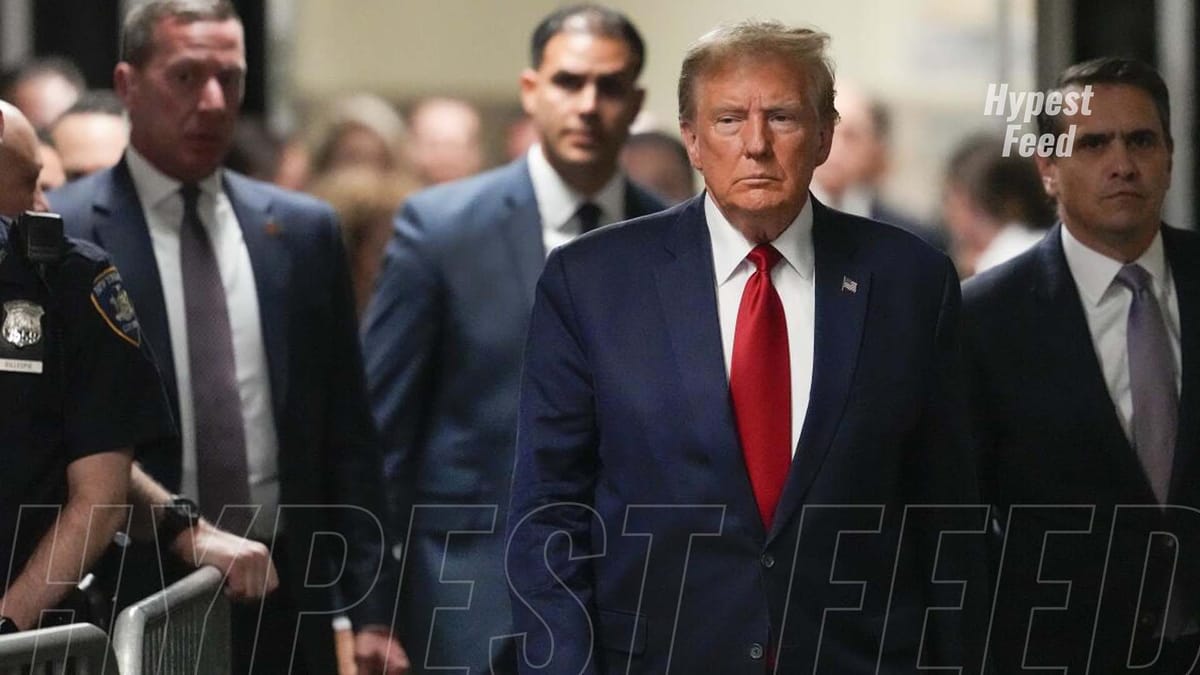On Thursday, Donald Trump faced a unique juxtaposition of judicial proceedings that underscored the complexities of his legal battles and political ambitions. While his attention was divided between his hush money trial in New York and the pivotal Supreme Court hearing on his immunity case, the former president found himself navigating two distinct arenas of legal scrutiny.
In New York, Trump confronted the intricacies of his criminal trial, where he stood accused of orchestrating a cover-up related to an alleged affair during the 2016 presidential campaign. Despite his desire for a more illustrious stage in Washington, where the Supreme Court deliberated on his immunity from prosecution as a former president, Trump was obligated to remain present for the proceedings in New York.
The prospect of a Supreme Court appearance presented a tantalizing opportunity for Trump, who undoubtedly relished the theatricality of the grandiose setting and the potential for a political spectacle. However, his immediate focus remained on the Manhattan courtroom, where he listened to testimonies from pivotal witnesses and engaged in legal proceedings that could significantly impact his future.
Trump's frustration with the situation was palpable, as he criticized the New York judge's decision to prioritize his trial attendance over his Supreme Court appearance. In his narrative of political persecution, Trump depicted the judge as overstepping his authority and obstructing his pursuit of justice.
As Trump grappled with the demands of his dual court dates, his legal battles continued to intertwine with his political aspirations, shaping the narrative of his presidency and his ongoing campaign endeavors.
The dynamics of Donald Trump's legal battles are unfolding on multiple fronts, showcasing the intricate interplay between his courtroom dramas and his political ambitions. As Trump navigates his hush money trial in New York and a pivotal Supreme Court hearing on his immunity case, he finds himself appealing to different audiences and maneuvering within the complexities of the legal landscape.
In the New York trial, Trump confronts the scrutiny of a jury tasked with evaluating evidence related to allegations of campaign misconduct. While this case holds significant implications for Trump's personal and political future, it also serves as a platform for him to address a broader electorate ahead of the upcoming presidential clash with Joe Biden. Trump's narrative of being a political dissident facing persecution resonates with millions of his supporters, who remain skeptical of efforts to hold him accountable for his actions.
Simultaneously, Trump's legal team is engaged in a high-stakes battle in the Supreme Court, where justices are deliberating on his immunity from prosecution as a former president. This case not only embodies the historic tension between executive power and legal accountability but also reflects Trump's relentless pursuit of legal strategies to evade accountability. By delaying his federal election interference trial, Trump seeks to leverage a potential return to presidential powers that could enable him to thwart federal prosecutions against him.
Amid these legal maneuvers, recent developments underscore the ongoing complexities of Trump's legal predicament. Indictments in Arizona and revelations in the Michigan fake electors probe serve as stark reminders of Trump's efforts to subvert the 2020 election. Additionally, Judge Juan Merchan's deliberations on a gag order in the New York trial further highlight the intricacies of Trump's courtroom battles and the delicate balance between judicial authority and political narratives.
As Trump and prosecutors navigate these legal waters, the implications extend far beyond the courtroom. Merchan's rulings and Trump's responses could shape public perceptions of justice and influence the broader political landscape. The convergence of legal and political considerations underscores the unprecedented challenges facing Trump and the enduring impact of his legal battles on the nation's democratic institutions.



Member discussion: